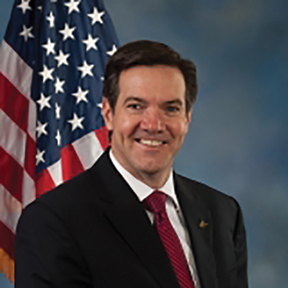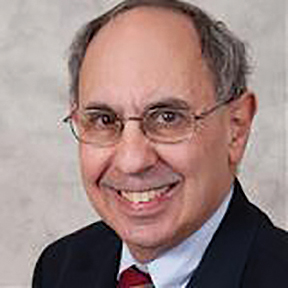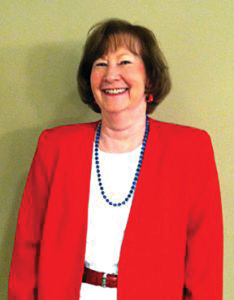Policy Speakers to Young Industry Leaders: Know the Facts and Be Communications Advocate
By John Kamp, Executive Director of the Coalition for Healthcare Communication
The speakers agreed: It’s prime time for the next generation of industry leaders to step up, speak up and be counted in Washington to ensure that policy makers fully understand the value of robust communication to the delivery of efficient and effective healthcare in America. The message came together on May 11 in Washington when a Congressman, inside-the-beltway experts, and key industry CEOs convened with more than 60 up-and-coming stars from the health agency networks, independent agencies, medical publishers, and digital content providers to review medical policy issues at the Coalition for Healthcare Communication’s Rising Leaders Conference.
The policy expert reports mixed optimism with warnings on issues ranging from FDA drug approvals and challenges to FDA bans on off-label promotion, to campaign and Capitol Hill warnings on direct-to-consumer (DTC) advertising.
Coalition Conference Chair Jon Bigelow, president of Thayer Pond Solutions LLC, opened the conference stressing that the healthcare communications industry plays a critical role in our healthcare system, and that it is vital for rising leaders to better understand the complexities of healthcare policy, integrate that understanding into their work, and be prepared to advocate for legislation and regulatory initiatives to further improve medical therapy and patient care. The strong interest in this conference reflects that these talented professionals are ready and eager to get involved, according to Bigelow.
Rep. Evan Jenkins (R-W. Va.), who currently serves on the House Appropriations Committee, offered his perspective on current and potential healthcare legislative proposals, including the status of the 21st Century Cures bill in the House and that of comparable Senate legislation and current and proposed limits on medical journals, textbooks, and DTC advertising.
Jenkins called out the “shame and blame” efforts of those “who want to criticize the communication component with healthcare providers and chill the ability [of companies] to communicate” about their treatments. He cited Sunshine Act disclosure requirements as being one of those chilling measures. “We will continue to fight and be with you to try to make sure that … medical journals and textbooks … should not be reportable in terms of transfers of value,” he asserted.
He also noted that growing healthcare expenditures are driving efforts in Congress to look at ways to control costs and that the pharmaceutical industry is getting caught in the crosshairs. This type of climate is where advocacy becomes extremely important, because although the tide may be rising to blame pharma companies for high healthcare costs, it is the industry advocate’s job to ensure that the benefits this industry provides to physicians and patients are well-understood and valued.
Jenkins asserted and the Coalition agrees that “it is very important that we do not put up unreasonable hurdles that limit the ability to have [industry] folks communicate with physicians and patients.” Although support for First Amendment protections of commercial free speech is gaining momentum in the courts, it seems that the FDA still has its head in the sand. At the Rising Leaders Conference, Alan Bennett, senior counsel, Ropes & Gray, reviewed several seminal cases casting serious doubt on the FDA’s bans on off-label promotion, but told attendees that the FDA “has not explicitly recognized yet that these cases make any difference. They have tried to explain [them] away.”
Indeed, as if they had heard Bennett, House Energy & Commerce Committee Chairman Fred Upton (R-Mich.) and Health Subcommittee Chairman Joseph Pitts (R-Pa.) wrote a letter to HHS May 26 which stated that “recent litigation has raised significant questions about FDA’s authority to restrict such communication. … As FDA’s authorizing committee, we are increasingly perplexed by the agency’s unwillingness or inability to publicly clarify its current thinking on these issues in a coherent manner,” the letter states.
Likewise, CHC panel moderator Wayne Pines, APCO Worldwide, asked Bennett whether the cumulative effect of recent case law moves the needle on risks the industry should take in the off-label promotion arena. Bennett replied that while FDA policy must change eventually, companies still have to be very careful because he believes the FDA is looking for a test case where a patient its hurt by off-label communication. “You don’t want to be that test case,” he told the Coalition.
However, Bennett advised that companies begin to build on the “truthful and non-misleading” standard established by the courts, and suggested that when they are confident their research meets those standards, they meet with the FDA to discuss evidence that supports increased communication
BIO’s Senior Vice President, Science Policy, Kay Holcombe, also spoke at the Rising Leaders Conference, sharing legislative and regulatory updates, and putting current actions into context for attendees. She began by offering strong praise for the current FDA approval process. She said that thanks to user fees the FDA is meeting its standard and priority review goals and provides the gold standard for such reviews throughout the world. Accordingly, she said the focus by Congress is now on making the drug development process more efficient and “fixing the interaction between FDA and the people who are developing drugs,” much of which is addressed in the House’s 21st Century Cures Act.
In fact, while she remained hopeful that these drug development provisions of the Cures Act would be adopted by the Senate and signed into law this year, she noted that failing that, these development provisions would likely be the starting point for user fee legislation that must pass Congress in 2017.
With advice from these experts and many others, the Coalition’s rising leaders left the conference with much to consider and with a call to action that is vital to the continued First Amendment protection of free speech. As Jenkins put it, the Coalition must continue its work to make sure that communication between industry and physicians and patients can occur “with as little inhibition as possible.”









